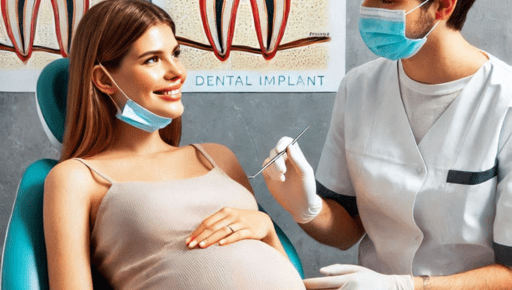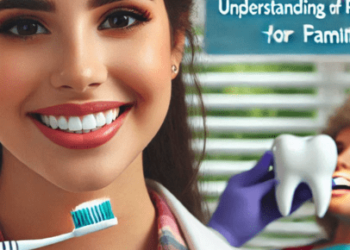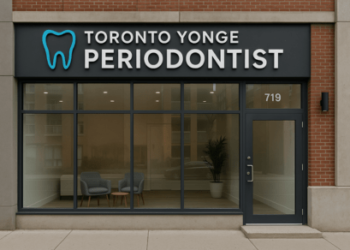For expectant mothers, maintaining good oral health is crucial during pregnancy. However, when it comes to dental procedures like implants, many women are left wondering if it’s safe to undergo treatment while pregnant. As a pregnant woman, it’s essential to consult with a qualified dentist in Powell, TN, who can provide personalized guidance and care.
In this article, we’ll explore the safety of getting dental implants during pregnancy and what you need to know before making a decision.

What is The Importance of Oral Health During Pregnancy?
Good oral health is crucial during pregnancy. Hormonal changes can affect the gums and teeth, leading to an increased risk of oral health problems, such as gum disease and tooth decay. Additionally, research has shown that there may be a link between gum disease and preterm labor, making it even more important for pregnant women to prioritize their oral health.
Are Dental Implants Safe During Pregnancy?
The safety of dental implants during pregnancy is a topic of ongoing debate. While some studies suggest that dental implants can be safely placed during pregnancy, others recommend avoiding the procedure until after delivery.
The American Dental Association (ADA) and the American Academy of Periodontology (AAP) recommend that dental implants be avoided during pregnancy, especially during the first trimester. This is because the first trimester is a critical period of fetal development, and any potential risks associated with dental implant placement could have unintended consequences.
However, some studies have shown that dental implant placement during pregnancy can be safe, especially if the procedure is performed during the second or third trimester. A 2018 study published in the Journal of Oral and Maxillofacial Surgery found that dental implant placement during pregnancy was not associated with an increased risk of complications or adverse outcomes.
| Dental implants are artificial tooth roots made of titanium that are surgically inserted into the jawbone to replace missing teeth. They provide a permanent and stable foundation for crowns, bridges, or dentures, restoring the natural look, feel, and function of teeth. |
What Are The Risks and Complications Associated with Dental Implant Placement During Pregnancy?
While dental implant placement during pregnancy may be safe in some cases, there are still potential risks and complications to consider. These include:
- Infection: As with any surgical procedure, there is a risk of infection associated with dental implant placement. This risk may be higher during pregnancy due to changes in the immune system.
- Bleeding: Dental implant placement involves surgical incisions, which can lead to bleeding. This risk may be higher during pregnancy due to changes in blood pressure and clotting factors.
- Medication risks: Certain medications used during dental implant placement, such as antibiotics and painkillers, may pose risks to the developing fetus.
- Stress and anxiety: Dental implant placement can be a stressful and anxiety-provoking experience, which may not be ideal during pregnancy.
What Are The Alternative Options for Pregnant Women?
If you’re pregnant and need dental implants, there are alternative options to consider. These include:
- Temporary dentures: Temporary dentures can be used to replace missing teeth until after delivery when dental implant placement can be reconsidered.
- Dental bridges: Dental bridges can be used to replace missing teeth, although they may not be as durable as dental implants.
- Postponing treatment: In some cases, it may be recommended to postpone dental implant placement until after delivery, when the risks associated with the procedure are lower.
Final Thought
While dental implant placement during pregnancy may be safe in some cases, it’s essential to carefully weigh the potential risks and benefits before making a decision. Pregnant women should consult with their dentist and healthcare provider to determine the best course of treatment for their individual needs. By prioritizing oral health and seeking professional guidance, pregnant women can ensure a healthy and happy pregnancy.










